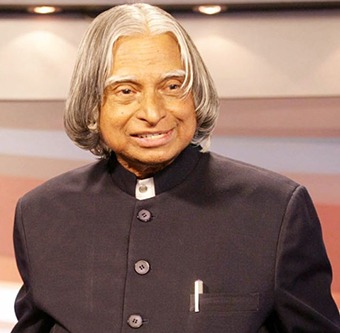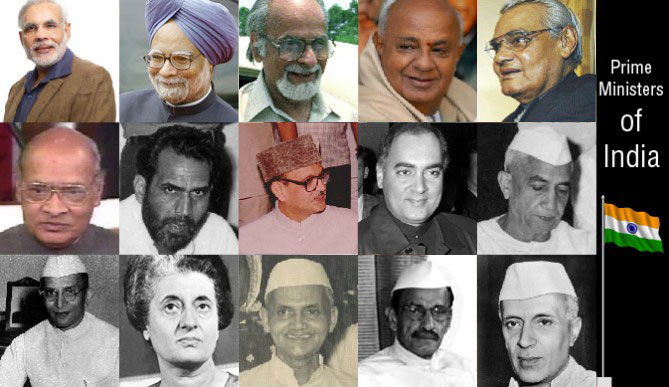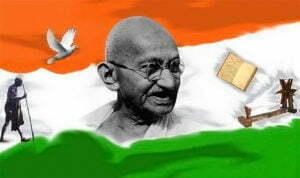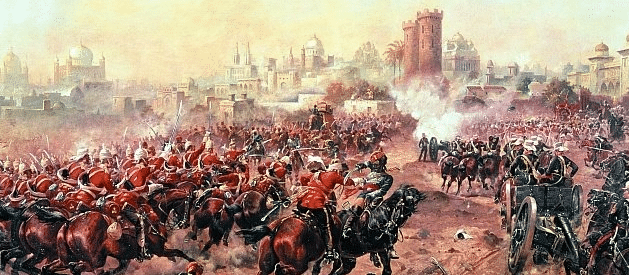Avul Pakir Jainulabdeen Abdul Kalam was an Indian aerospace scientist as well as the 11th president of India (from 2002 to 2007). He often spoke to the youth and inspired them to think big in life. Here, we will look at some motivational quotes by A.P.J Abdul Kalam.
Meaningful quotes by Abdul Kalam
During his lifetime, Abdul Kalam gave countless speeches at various events. These speeches always contained memorable quotes, some of which we will discuss today.
1. “Dream is not what you see in sleep. A dream is something that doesn’t let you sleep.”

Dr Kalam was known to be a great visionary and an achiever. He had an in-depth understanding of the dynamics between dreams, goals and ambitions, which can be quite complicated to understand. This wonderful quote by A.P.J Abdul Kalam perfectly showcases his understanding.
From it, one can learn two things:
- First, if one’s dreams or goals do not wake one up from bed, then they are probably not one’s actual dreams. However, if they are one’s actual dreams, then one has not put in habits or tools to ignite them to achieve the goal.
- Second, no dreams can come true without effort and action. If one’s thoughts and ambitions are not aligned with one’s actions, then one will not obtain a desirable result.
2. “If you want to shine like a sun, first burn like a sun.”

Hard work is required for success. Putting in blood and sweat as well as being able to persevere against all odds is required for success. One must put in the time to gather knowledge on a subject and sacrifice pleasurable activities in favour of one’s goals.
Abdul Kalam believed that many people get carried away by the glamour of success, but very few are willing to put in the efforts to actually achieve it. The process to achieve success must be worshipped, enjoyed and managed with tremendous care.
3. “You cannot change your future, but, you can change your habits, and surely your habits will change your future.”
Success is a result of daily habits. If one wants to lose weight, become a successful writer or an entrepreneur, then one has to break the goal down into daily tasks and stick to them till they become a habit. These habits should be a part of almost every area of life rather than being limited to one area of activity. Furthermore, not building good habits would viciously hamper the goals set.
It is important to remember that, to become successful, one must build good habits and maintain them not for days or weeks but for years on end.
4. “The two most important life goals I would like every youth to have: one – increase the amount of time that you have at your disposal and two – increase what you can achieve in the time available.”

This motivational quote by A.P.J Abdul Kalam says that one cannot form good habits and achieve one’s goals unless one manages time effectively. One must prioritise the most value-added tasks in life so that one can get the most out of the time available. Thus, one must make plans and daily habits around the prioritised tasks and execute those plans ruthlessly. People must be prepared to spend all of their willpower on this.
5. “What is the secret of success? Right decisions. How do you make the right decisions? Experience. How do you gain experience? Wrong decisions.”
As a successful scientist, Dr Kalam spent countless hours experimenting, failing and learning to form his failures. Life follows a similar principle as a science experiment. The best way to grow and learn in life is to complete tasks. One must take small actions frequently, fail and learn from them. The more one does that, the closer one gets to achieving their goal. Dr Kalam constantly encouraged people to overcome the fear of failure, as success can only be achieved through failure.
6. “If you fail, never give up because F.A.I.L. means “First Attempt In Learning”. End is not the end, in fact, E.N.D. means “Effort Never Dies.” If you get No as an answer, remember N.O. means “Next Opportunity”. So, let’s be positive.”

The best way to look at failures is through the lenses of positivity. This quote by Kalam talks about just that.
7. “All birds find shelter during a rain. But an eagle avoids rain by flying above the clouds. Problems are common, but attitude makes the difference.”
When facing a dire situation, it is easy to give up and blame the problem for not achieving a goal. However, problems are common. Everyone faces them at some point in their life. They complain or try to escape it. However, this does not solve the issue they are facing.
Dr Abdul Kalam believed that the only way to solve problems is to face them with faith, courage and positivity. Doing so will allow creative solutions to the problems to show up by themselves.
8. “A Fool can become a Genius when he understands he is a Fool. But a Genius can become a Fool when he understands he is a Genius.”
This quote clearly states that becoming full of oneself eventually leads to one’s downfall. However, knowing one’s shortcomings and overcoming them gradually is a sure shot recipe to become a genius. Thus, Dr Kalam believed that learning never stops, as that can lead to stagnation, which in turn can result in diminishing capabilities.
9. “In life, no one will remember how you looked, walked, talked or what you did. Everyone just remembers you by the way you made them feel when they were with you.”

A.P.J Abdul Kalam believed that nothing mattered more than being respectful to people. People gravitate towards those who give them love and respect. Therefore, one can gain true friends only by reciprocating love and respect, and not by superficial aspects such as power or money.
10. “I’m not a handsome guy, but I can give my Hand to Someone who needs help. Beauty is in the heart, not in the face.”
The real superheroes are those who selflessly help people in need. Thus, the people who stand by us during our greatest time of need are the real knights in disguise. One must treat them well and treasure them instead of judging them by their looks and expressions
11. “The best brains of the nation may be found on the last benches of the classroom.”
The “last-bencher”, is often used as a metaphor for people who do not conform to conventions. Their imagination is not bound by their textbooks or by people. Dr Kalam, believed these people to be silent rebels, those who went against the flow of current.
So, just because a person’s grades are not good or because they don’t excel in sports, art or rote learning, does not mean that they are not intelligent.
About APJ Abdul Kalam

The early life of Dr. A.P.J Abdul Kalam
Dr. A.P.J Abdul Kalam was born on 15 October 1931 to a Muslim family in Rameswaram, Tamil Nadu. His father Jainulabdeen Marakayar owned a boat and his mother Ashiamma was a housewife. Kalam was the youngest among 6 siblings. He had four older brothers and one elder sister. Although his ancestors had been wealthy traders and landowners, the family had lost most of its fortune by the 1920s and were poverty-stricken by the time Kalam was born.
As a young boy, Kalam had to sell newspapers to add to the family’s meagre income. Nevertheless, due to his desire to read, he spent hours studying and learning mathematics. His efforts paid off, and he had built a strong foundation in academics in the initial stages of his education.
Education and Career
After completing his schooling at Rameshwaram Elementary School and Schwartz Higher Secondary School, he attained a degree in Physics from Saint Joseph’s College. In 1955, he studied Aerospace Engineering at Madras Institute of Technology, following which, Kalam joined the Aeronautical Development Establishment of the Defence Research and Development Organisation (DRDO) as a scientist. Additionally, Abdul Kalam was a part of the Indian National Committee for Space Research (INCOSPAR), where he worked under the renowned space scientist, Vikram Sarabhai.
In 1969, Kalam joined the Indian Space Research Organisation (ISRO) where he was assigned the position of the project director of India’s first Satellite Launch Vehicle (SLV-III). This vehicle successfully deployed the Rohini satellite in near-earth orbit in 1980.
Kalam had started work on an expandable rocket project at DRDO in 1965 and in 1969, he received the government’s approval to expand the program. Furthermore, Kalam made a tremendous effort to develop the Polar Satellite Launch Vehicle (PSLV) and SLV-III projects, between the 1970s and 1990s.
Work with missile projects

A.P.J Kalam’s dedication led to the development of 4 missile projects namely Trishul, Prithvi, Nag and Akash, thus earning him the title of the ‘Missile Man of India’. Furthermore, Kalam’s education added to his role in conducting the Pokhran-II, a series of 5 nuclear test explosions in 1998. His work caused India to be recognised as a full-fledged nuclear state.
FAQs
1. What did Abdul Kalam say about dreams?
Dr Kalam believed that if one doesn’t dream high then one can not do something big and worthwhile. It is the dream that motivates a person to get up each day and do something big for themselves and also for others. However, just dreaming is not enough. One must take the appropriate steps to make their dream a reality.
His thoughts are expressed in several of his quotes, such as:
- “Dream, dream, dream. Dreams transform into thoughts and thoughts result in action.”
- “You cannot change your future, but, you can change your habits, and surely your habits will change your future.”
2. What did Abdul Kalam say about success?
As one tries and progresses towards their goal, one needs to learn to handle both success and failure. It can be easy to maintain positivity and keep going when all is well but difficult when a problem occurs. However, with a strong mind, any situation can be dealt with.
Furthermore, Dr Kalam also believed that learning takes place at every stage of life. One must then use the knowledge gained to better themselves. There are no limitations to what one can accomplish in life.
Abdul Kalam said that 4 things were essential to achieve success. They are:
1. A great aim.
2. Ability to continuously acquire knowledge.
3. Working hard.
4. Perseverance.
All one needs to do to achieve their goals is to work hard and use their creative skills to identify new discoveries that show the world their value.
He always spoke about these in the various speeches he gave. Some quotes are:
- “Winners are not those who never fail but those who never quit.”
- “To succeed in your mission, you must have single-minded devotion to your goal. “
- “If you fail, never give up because Fail means “First Attempt In Learning.”
- “Failure will never overtake me if my determination to succeed is strong enough.”
- “Man needs his difficulties because they are necessary to enjoy success.”
3. Why does Abdul Kalam speak about friendship?

Humans are given the opportunity to choose their friends. One must pick people who understand everything about them and are willing to stand by their side in bad or good situations.
Our friends have the right to point out our mistakes and bad habits. However, one must not get demotivated when they do so.
A.P.J Abdul Kalam said that no matter what, one must always believe in their friend, even if the entire world stands against them.
The following quotes by Abdul Kalam showcase these thoughts:
- “Old friends are gold, and new friends are diamonds. If you get diamonds don’t forget gold because only gold can hold diamonds.”
- “One best book is equal to a hundred good friends, but one good friend is equal to a library.”
- “Never leave your closed ones if you find some faults in them. Just close your eyes and remember the best time you spent together because affection is more important than perfection.”
- “Sometimes, it’s better to bunk a class and enjoy it with friends, because now, when I look back, marks don’t make me laugh, but memories do.”
- “Good friends care for each other; close friends understand each other, but true friends stay forever beyond words, beyond distance and beyond time.”
- “Love is not only made for lovers but it is also made for friends who love each other better than lovers.”
- “A true friend is very hard to find, difficult to live, and impossible to forget. “
- “Making a hundred friends is not a miracle; the miracle is to make one friend who will stand by your side even if hundreds are against you.”
4. What are some quotes by Abdul Kalam about teachers?

Teaching is a noble profession. Teachers shape the character, calibre and future of countless individuals. While growing up, A.P.J Abdul Kalam has several teachers who shaped his mindset and encouraged him to achieve his goals. These experiences led him to develop a great appreciation and fondness for the profession. In fact, he also declared that he would like to be remembered as a teacher after his death. He was so passionate about the profession that even when he became the President in 2002, he grabbed every opportunity to teach students.
He has talked about his love and respect for the profession numerous times. The quotes said by the Missile Man of India are an inspiration to countless teachers even now. Some of them are:
- “I believe there is no other profession in the world that is more important to society than that of a teacher.”
- “Teachers are the backbone of any country, the pillar upon which all aspirations are converted into realities.”
- “Learning needs freedom to think and freedom to imagine, and both have to be facilitated by the teacher.”
- “A good teacher, with meticulous planning, prepares himself for teaching and the student for the acquisition of knowledge.”
- “Teachers have a great mission to ignite the minds of the young.
- “Teachers should be the best minds in the country.”
- “The role of the teacher is like the proverbial ‘ladder’, it is used by everyone to climb up in life, but the ladder itself stays in its place.”
5. What are some books written by A.P.J Abdul Kalam?
Dr Kalam has written several books during his lifetime. Some of the most popular ones are:
1. Wings of Fire: An Autobiography | Year published: 1999
2. Ignited Minds: Unleashing the Power within India | Year published: 2002
3. The Luminous Sparks: A Biography in Verse and Colour | Year published: 2004
4. Guiding Souls: Dialogues on the Purpose of Life | Year published: 2005 Co-author: Arun Tiwari
5. Mission of India: A Vision of Indian Youth | Year published: 2005
6. Inspiring Thoughts: Quotation Series | Year published: 2007
7. You Are Born To Blossom: Take My Journey Beyond | Year published: 2011
8. Scientific India: A Twenty-First Century Guide to the World around Us | Publishing year: 2011
9. Failure to Success: Legendary Lives | Year published: 2011
10. Target 3 Billion | Year published: 2011
11. You are Unique: Scale New Heights by Thoughts and Actions | Year published: 2012
12. Turning Points: A Journey through Challenges | Year published: 2012
13. Indomitable Spirit | Year published: 2013
14. Spirit of India | Year published: 2013
15. Thoughts for Change: We Can Do It | Year published: 2013
16. My Journey: Transforming Dreams into Actions | Year published: 2013
17. Governance for Growth in India
18. Manifesto for Change | Year published: 2014
19. Forge Your Future: Candid, Forthright, Inspiring | Year published: 2014
6. What awards has A.P.J Abdul Kalam won?
| Year of award or honour | Name of award or honour | Awarding organization |
| 2014 | Honorary professor | Beijing University, China |
| 2014 | Doctor of Science | Edinburgh University, UK |
| 2013 | Von Braun Award | National Space Society |
| 2012 | Doctor of Laws (Honoris Causa) | Simon Fraser University |
| 2011 | IEEE Honorary Membership | IEEE |
| 2010 | Doctor of Engineering | University of Waterloo |
| 2009 | Honorary Doctorate | Oakland University |
| 2009 | Hoover Medal | ASME Foundation, USA |
| 2009 | International von Kármán Wings Award | California Institute of Technology, USA |
| 2008 | Doctor of Engineering (Honoris Causa) | Nanyang Technological University, Singapore |
| 2008 | Doctor of Science (Honoris Causa) | Aligarh Muslim University, Aligarh |
| 2007 | Honorary Doctorate of Science and Technology | Carnegie Mellon University |
| 2007 | King Charles II Medal | Royal Society, UK |
| 2007 | Honorary Doctorate of Science | University of Wolverhampton, UK |
| 2000 | Ramanujan Award | Alwars Research Centre, Chennai |
| 1998 | Veer Savarkar Award | Government of India |
| 1997 | Indira Gandhi Award for National Integration | Indian National Congress |
| 1997 | Bharat Ratna | Government of India |
| 1995 | Honorary Fellow | National Academy of Medical Sciences |
| 1994 | Distinguished Fellow | Institute of Directors (India) |
| 1990 | Padma Vibhushan | Government of India |
| 1981 | Padma Bhushan | Government of India |
7. When and how did the Missile Man of India pass away?
APJ Abdul Kalam collapsed and passed away because of a cardiac arrest on July 27, 2015, while delivering a lecture at the IIM, Shillong.
8. How many degrees does A.P.J Abdul Kalam Have?
Dr Kalam has 48 degrees from universities all over India and Abroad. Some of his degrees include:
| University | Year | Title | Place |
| Anna University, Chennai | 1981 | Doctor of Science | Chennai |
| Jadavpur University | 1980 | Doctor of Science | Kolkata |
| IIT Kanpur | 1990 | Doctor of Science | Kanpur, UP |
| Madurai Kamaraj University | 1990 | Doctor of Science | Madurai |
| Jawaharlal Nehru Technological University | 1997 | Doctor of Philosophy | Hyderabad |
| IIT, Mumbai | 1991 | Doctor of Science (Honoris Causa) | Mumbai |
| IIT, Delhi | 1995 | Doctor of Science(Honoris Causa) | Delhi |
| University of Mysore | 1995 | Doctor of Science(Honoris Causa) | Mysore |
| Birla Institute of Technology | 1995 | Doctor of Science(Honoris Causa) | Ranchi |
| Bharathidasan University | 1998 | Doctor of Science(Honoris Causa) | Trichy |
| University of Madras | 1999 | Doctor of Science(Honoris Causa) | Madras |
| Andhra University | 2000 | Doctor of Science(Honoris Causa) | Vizag |
| Manipal Academy of Higher Education (Deemed Univ) | 2000 | Doctor of Science(Honoris Causa) | Manipal |
| Chhatrapati Shahuji Maharaj University | 2000 | Doctor of Science(Honoris Causa) | Kanpur |
| Rajiv Gandhi Proudyogiki Vishwa Vidyalaya | 2002 | Doctor of Science(Honoris Causa) | Bhopal |
| Nyenrode Business University | 2007 | Doctor(Honoris Causa) | Breukelen |
| Carnegie Mellon University | 2007 | Doctor of Science | Pittsburgh |
| Nanyang Technological University | 2008 | Doctor of Engineering(Honoris Causa) | Singapore |
| Aligarh Muslim University | 2008 | Doctor of Science(Honoris Causa) | Aligarh |
| University of Wolverhampton | 2008 | Doctor of Science | Birmingham London |
| Queen’s University | 2008 | Doctor of Laws | Belfast, UK |
| Defence Instt of Advanced Technologies (DU) | 2011 | PhD (Hon Causa) | Pune, India |
| University of Sydney | 2011 | Doctor of Engg(Hon causa) | Sydney, Aus |
| Sastra University, Thanjavur | 2011 | Degree of Science (Hon Causa) | Thanjavur, Tamil Nadu |
| B.S. Abdur Rahman University Chennai | 2012 | Doctor of Science (Honoris Causa) | Chennai, Tamil Nadu |
| Simon Fraser University Vancouver, Canada | 2012 | Honorary Degree Doctor of Laws, honoris causa | Vancouver |
| University of Edinburgh | 2014 | Doctor of Science (HC) | Edinburgh, UK |
Share with your friends






